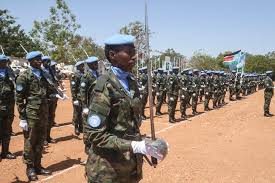COVID-19, Smoking, Drinking and the Anti-TB Champion
Theme: Do Not Smoke; Do Not Drink
We cannot allow smoking if we also want to live a TB-free life. But, then COVID-19 is threatening the life of those with immune-compromised conditions and TB as well.
So, we have to take TB prevention personal and institutional. Stay safe. Be secure.
The communities must engage in critical prevention activities to significantly reduce instance of COVID-19 transmission during the COVID-19 pandemic/lockdown.
The health facilities have significantly reduced TB services during the COVID-19 pandemic/lockdown.
The communities must provide all non-stigmatising opportunities and contexts TB-medication taking as well as to significantly reduce instances of COVID-19 transmission during the COVID-19 pandemic/lockdown.
The number of people attending health facilities for TB testing and treatment has decreased significantly during the COVID-19 pandemic/lockdown.
The capacity to provide TB diagnostic services (e.g. smear microscopy, GeneXpert, culture and counselling) has decreased significantly during the COVID-19 pandemic/lockdown.
Local communities must be empowered to take care of people with TB.
Overall the capacity for health facilities to provide care and follow-up to people with TB has decreased significantly during the COVID-19 pandemic/lockdown.
People with TB can successfully continue their treatment at home when given TB medicine to cover more months during the COVID-19 pandemic/lockdown.
Most of the resources for TB in-patients (e.g. isolation wards, beds) are being repurposed and used for COVID-19 patients. Also health facilities have experienced a significant increase in stock-outs and/or delays in the delivery or pick-up of TB medicines during the COVID-19 pandemic/lockdown.
It is better to stay home, follow the MoH guidelines, sanitize, don’t drink and do not smoke so that you reduce vulnerability to COVID-19. If we don’t many people may be infected and this will overwhelm the health facilities.
With the likelihood that COVID-19 pandemic is raging; health facilities will run out or lack personal protective equipment (PPE) (e.g. masks) to safely care for both TB and COVID-19 patients.



















